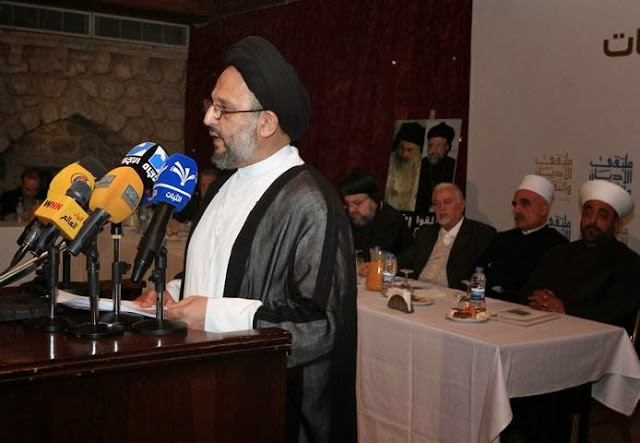السيّد علي فضل الله: "ملتقى الأديان والثقافات" مبادرة حواريّة لتخفيف الاحتقان الطائفي

بقلم هيثم مزاحم نشرفي 7 نوفمبر 2013 "إن الله علّمنا أن نحاور كلّ الناس، ولا توجد مقدّسات في الحوار، فقد حاور الله تعالى إبليس، فهل هناك من الناس من هو مثل إبليس؟ كما أن القرآن هو كتاب حوار مع المشركين في توحيد الله، ومع الكافرين في وجود الله وفي نبوّة النبي..."، هكذا أجاب المرجع اللبناني الشيعي الراحل السيّد محمد حسين فضل الله عندما سئل عن ازدياد الحديث عن الحوار بين الأديان في فترة التسعينيات من القرن العشرين. مناسبة الكلام عن الراحل فضل الله اليوم ودعوته للحوار مع الآخر وخصوصاً مع المسيحيّين والمذاهب الإسلاميّة الأخرى، هو المبادرة التي أطلقها نجله العلامة السيّد علي فضل الله بتأسيس "ملتقى الأديان والثقافات للتنمية والحوار" بمشاركة خمسين شخصيّة من رجال دين مسلمين ومسيحيّين ومفكّرين ومثقّفين من لبنان والعالم العربي والإسلامي. و"الملتقى" أعلن عنه فضل الله في حفل أقيم في بيروت الثلاثاء 30 تشرين الأول/أكتوبر المنصرم. وقد حضره نواب وسياسيّون وقادة حزبيّون ومثقّفون ومفكّرون وإعلاميّون، أبرزهم رئيس كتلة الوفاء للمقاومة (حزب الله) النائب محمد رعد ورئيس ا
